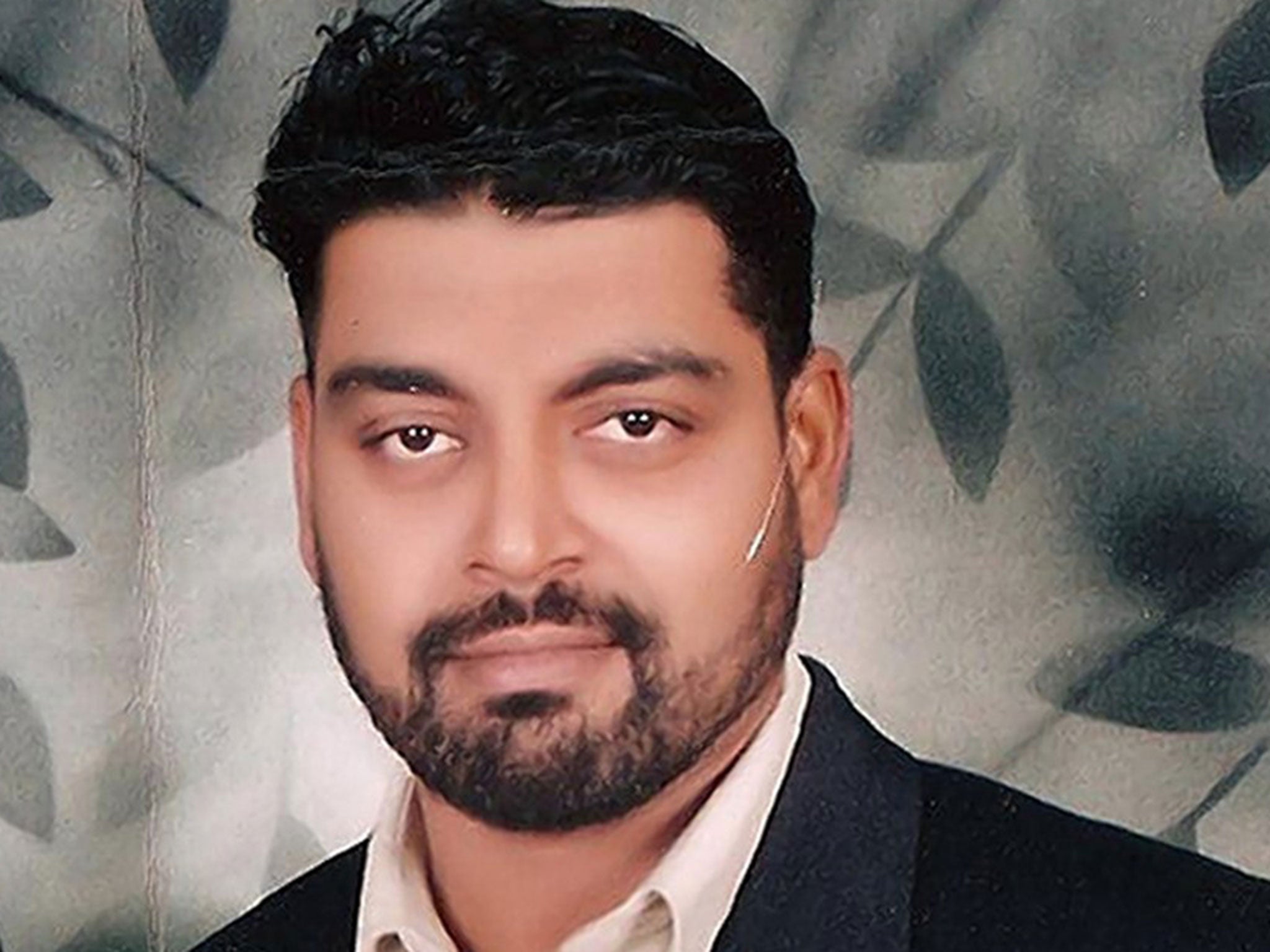Habib Ullah: Family outcry as CPS declines to charge police officers linked to stop-and-search death

The family of a man who died after being forced to the ground during a routine stop-and-search by police six years ago has reacted furiously after learning that nobody would be charged over his death and an alleged subsequent cover-up.
Five officers and a solicitor were told today that they would not face a criminal trial after their initial accounts were changed at a meeting the morning after the death of father-of-three Habib UIlah, 39, in July 2008 after a routine search for drugs in a car park in High Wycombe in July 2008.
He was suspected of putting a drugs package into his mouth and was slapped on the back by one officer before he was brought to the ground face-down. His heart stopped beating and a pathologist later said his death was caused by multiple factors.
Despite the decision by the Crown Prosecution Service (CPS), the officers from Thames Valley police will face a disciplinary hearing for gross misconduct after an embarrassing about-turn by the police watchdog, the Independent Police Complaints Commission (IPCC).
It had found in 2009 that the officers had no case to answer after a botched investigation into what happened on the night.
Nasrit Mahmood, the dead man’s sister, said: “There was so much evidence that something has gone wrong. We’re not happy with the decision but we don’t have any faith in the CPS or the IPCC. I thought they’d make up some Jackanory story.
She added: “A healthy man dies at the hands of the police within minutes. Then at the inquest they are caught out withholding evidence in front of everyone including the judge and jury. We will keep on fighting, whatever route that takes, even if takes 10 or 20 years.”
The CPS considered potential charges including manslaughter and perverting the course of justice. “Since there is insufficient evidence to give rise to a realistic prospect of convicting any person of any criminal offence arising from the circumstances of Mr Ullah’s death, we have advised the IPCC that no further criminal action should be taken,” it said.
The case raises serious questions about the willingness of the watchdog to confront police officers after a letter from a former senior official of the Independent Police Complaints Commission expressed concerns that the “barriers” would go up if they treated the officers like suspects in a suspicious death.
The letter from deputy chairwoman Deborah Glass, who has now left organisation, said the decision to serve officers with warning disciplinary notices “will also go around the force like wildfire with the real possibility that in future incidents, officers will be much more reluctant to cooperate with our investigators”.
It has emerged that an investigator did not turn up on the night of Mr Ullah’s death and was unaware that statements were changed until an inquest in 2010 when the family’s legal team uncovered the discrepancies.
The family has been sent an 80-page letter by the Crown Prosecution Service explaining its decision not to charge based on a second investigation by the police watchdog.
The letter revealed that an IPCC investigator had asked for the officers to be separated and video statements taken the day after Mr Ullah’s death – but the request was refused by the officers’ representative from the Police Federation because they were not considered suspects in suspicious death.
The CPS said that there was no “causal link” between the restraint and Mr Ullah’s death, and that the changing of the statements was intended to mislead.
The five police officers will face an internal disciplinary inquiry and the solicitor, who has not been named, has been reported to the industry regulator for possible misconduct charges. IPCC Associate Commissioner Guido Liguori said: “This has been a complex investigation which as we have said has taken an unbearably long time for Mr Ullah’s family.”
The Home Secretary Theresa May has announced a review of the police disciplinary process and introduced measures to strengthen the powers of the IPCC in the light of cases taken on by the watchdog that failed to expose police wrongdoing.
